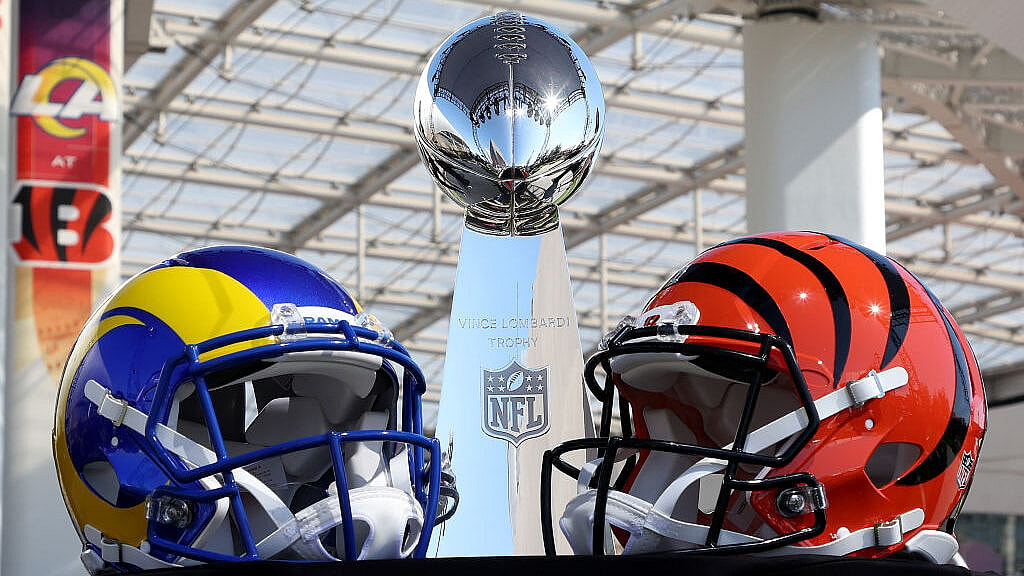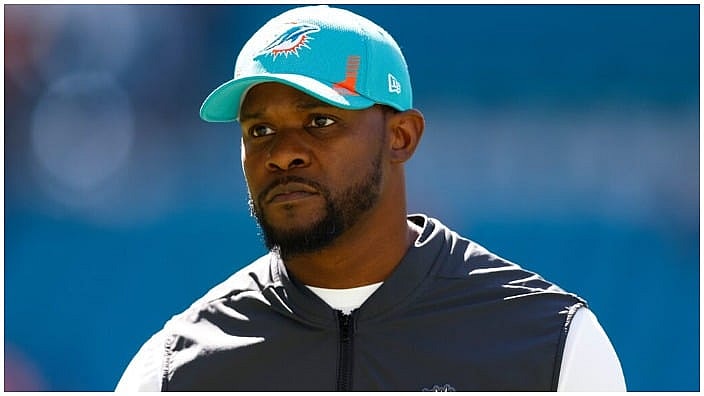Sunday’s Super Bowl LVI caps a tumultuous two weeks for the NFL, putting on display its shoddy diversity and inclusion record and highlighting the struggles that Black people have in attaining advancement opportunities.
The game between the Cincinnati Bengals and the Los Angeles Rams at SoFi Stadium in Los Angeles has taken a back seat to the league’s admitted problems. It also highlights the difficult relationship the NFL has with African Americans on and off the field.

The on-field product garners the most attention. Seventy percent of NFL players are Black. But among the 32 head coaches, only two are Black — the recently hired Lovie Smith of the Houston Texans and Mike Tomlin of the Pittsburgh Steelers. There are three other head coaches of color — Robert Saleh, NY Jets; Ron Rivera, Washington Commanders; and Mike McDaniel, Miami Dolphins.
But the off-field product, as the NFL has hinted at, has just as many issues. The league continues to face criticism for its lack of diversity among its vendors and also for its social justice stance.
In another shot across the bow, the New York Times earlier this week wrote about an NFL culture that women say pushes them aside.
“We all love football, but if you work there every day, you learn it is not a place you feel good about,” Ramona Washington, a Black former production coordinator at NFL Network, told the Times.
The two weeks before America’s most-watched sporting event, the NFL normally focuses on athlete interviews and pregame hype. Not this year. Consider:
- Former Miami Dolphins head coach Brian Flores filed a class action lawsuit against his former team and the NFL on February 1 over its hiring practices, alleging discrimination.
- On February 3, the agent for former Detroit Lions defensive coordinator Teryl Austin claimed the Lions put his client through a “sham” interview. The agent alleged that the team talked to Austin just to satisfy the league’s Rooney Rule that says that all teams must interview at least one diverse candidate for head coaching openings.
- On February 5, NFL Commissioner Roger Goodell sent an extraordinary memo to all teams noting that it’s failing in its diversity efforts, especially with NFL coaches.
“We have made significant efforts to promote diversity and adopt numerous policies and programs that have produced positive change in many areas, however, we must acknowledge that particularly with respect to head coaches that results have been unacceptable,” the memo said.
A group of civil rights leaders agree and want the NFL to replace the Rooney Rule.
“The Rooney Rule has proven to be something the owners used to deceptively appear to be seeking real diversity,” The Rev. Al Sharpton, founder and President of the National Action Network, said in a statement. “We must have firm targets and timetables.”
But Goodell’s memo also nods to the NFL’s off-field problems, issues not as front-and-center as the ones between the hash marks. Goodell, in his memo, said, “We will examine all policies, guidelines and initiatives relating to diversity, equity and inclusion, including as they relate to gender.”

There’s a lot of work to do there, too. For example, AdAge reported that just five people of color served as directors for commercials that aired during the 2021 Super Bowl. That represents about 9% of the 87 ads that ran during the event. An industry report shows Super Bowl advertisers fell short in diversity and inclusion goals during the 2021 broadcast. And the league still faces criticism that it’s not doing enough to address the concerns of its diverse fan base.
Traci Canada, an assistant anthropology professor, says the league’s relationship with its Black players is exploitative.
Canada’s July 2021 piece in Scientific American drew a comparison between the way the NFL treats Black players and slavery.
“We value what you can do for us on the field. And we value you as long as you can produce for us,” said Canada, who teaches at Notre Dame. “And the second that no longer exists, whether you retire or get hurt, what happens to you doesn’t impact us,” she told theGrio. “It’s not our concern.”
Canada’s comments show the complexities in a diversity debate that continues to vex the NFL. On one hand, the league has, among some Blacks, a real off-the-field publicity problem. But for others, the league provides an opportunity to make money — and lots of it — for young Black men.
“This is a business, and we understand that they’re the owners and my players were the workers, to be very candid,” former NFL agent Ron Todd said in an interview with theGrio.
“They’re getting paid by these rich owners, and they really don’t want to rock the boat,” he added. “I mean, they’re like ‘Man, I miss my money. I’ve got a family to feed. I’m taking care of my mom and my grandma.’ ”
And they get paid well, even if the average career lasts just three years. An NFL player makes a median salary of $860,000, meaning half the players make more and half make less. Rookies make a minimum of $660,000 when you consider salaries and bonuses.
But the more visible on-field issues obscure a different problem that raises a larger point. How can the NFL, which has in the past praised its diversity efforts, really help improve the lives of Black people who make up the largest demographic of “avid” fans in the sport?
From a financial perspective, the league has the might. It pulls in about $15 billion a year in revenue; even in a pandemic year, the NFL still topped $12 billion. The average franchise value sits at $3.5 billion, the highest of all the major sports. The average operating income (profits minus expenses) came in at nearly $109 million in 2019, the last non-pandemic season.
Goodell noted the league’s “significant efforts” in promoting diversity. The league lets players put one of six social justice messages on the back of their helmets. The league has added the phrases “It takes all of us” and “End Racism” in the end zones during games. NFL Event select helps offer opportunities to event suppliers from diverse companies.
But there’s so much we don’t know. How many vendors does the NFL contract with and what percentage is Black and/or minority-owned? What’s the financial impact of NFL Select? What meaningful efforts can the league make, besides sending Black students to the Super Bowl to play a video game?
The NFL did not answer emails seeking answers to those questions.
It’s also worth noting that the NFL’s annual diversity and inclusion report deals with coaches and personnel, but no off-field issues.
“I do think that’s probably going to change a bit as more people note the economic machine that the NFL is, that the Super Bowl especially is, and how it’s not just a lack of diversity with the general managers or with the coaches. It’s really throughout,” George B. Cunningham, a professor of sports management at Texas A&M University, told theGrio.
Cunningham, who has written extensively about the NFL’s diversity issues, noted that organizations like Coca-Cola and General Motors have made minority business outreach efforts a core part of their business model.
“UPS, for example, is one of the leaders in that area,” Cunningham said. “They work with large organizations across the U.S. like the Women’s Business Enterprise National Council or the National Minority Supplier Development Council to really connect vendors with UPS, and other companies follow suit as well.”
Another way to get change — pave the way for a Black NFL owner. There are just two people of color who hold principal ownership stakes in an NFL team — Kim Pegula of the Buffalo Bills and Shahid Khan of the Jacksonville Jaguars.
That could change. Bloomberg News reported Wednesday that Byron Allen, the Black media mogul whose properties include theGrio, is preparing a bid to purchase the Denver Broncos. Forbes says the Broncos are worth $3.75 billion, one of the most valuable sports teams in the world, ranking in the top 25.
Despite these efforts, the league’s problems persist.
Derek Williams, the athletic director at the HBCU Wilberforce University, put it succinctly to theGrio: “Although the NFL has done some things to make changes to solve advancement, it’s still not enough.”
TheGrio is now on your TV via Apple TV, Amazon Fire, Roku, and Android TV. Also, please download theGrio mobile apps today!”

